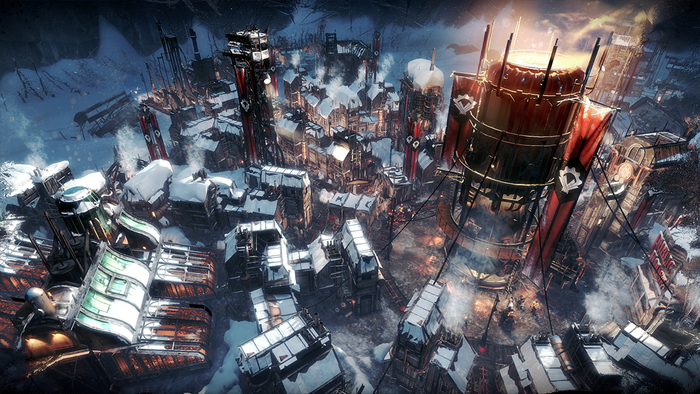The game industry tends to be so obsessed with latching onto the next big innovation that it fails to flesh out -- or improve -- existing game concepts and ideas that are still viable, says Gamasutra's Kris Graft.

[The game industry tends to be so obsessed with latching onto the next big innovation that it fails to flesh out -- or improve -- existing game concepts and ideas that are still viable, says Gamasutra's Kris Graft in this new editorial.] I remember a review back in 2007 that said something to the effect that Call of Duty 4: Modern Warfare was the best take yet on archaic gameplay. It was a backhanded compliment that basically said "Yeah, this is a great game, but it's so linear, so minus one point." Grand Theft Auto taught us that open world is good, so if open world means good, linearity means bad, right? When Modern Warfare came out, I think people were kind of confused -- "Why do I love this game so much? It's so linear!" Linear was supposed to be old hat, but look, someone did something amazing in a heavily scripted game. What Modern Warfare did was avoid a pervasive tendency in the games industry to jump onto the next innovation bandwagon, a habit that sees game makers skimping on fleshing out existing concepts, ideas or gameplay styles that still have plenty of life left in them. It wasn't too long ago when game companies seemed to believe that in order to make an older franchise relevant, they had to make the next installment an open world game. A lot of these open world games just ended up with a lot of empty space for you to drive, skate or run around in between doing things that were actually fun. So it annoyed me slightly when Tony Hawk and Burnout, for example, got all sandbox on me instead of really focusing on expanding and improving the fun core gameplay. Thanks a lot, GTA. But this tendency goes beyond linearity. Look at 2D, for instance. New 3D console technology came about and for a while it seemed like the format was on its deathbed. Now, thanks in part to digital distribution, we can see that 2D will probably never die, but continue to evolve. Dragon Age, StarCraft II, Braid, VVVVVV, Demon's Souls, Gears of War and even Forza 3 are specific examples of games where the designers didn't shy away from established conventions, but actually embraced those conventions and improved or expanded upon them meaningfully. I'm not suggesting that game makers should slap some new paint on old crap and let me be nostalgic. I'm saying look at what you've got available to you, whether it's a gameplay mechanic, a story premise, a piece of hardware, etc., and ask yourself honestly if the work is done there. Most great games aren't based on brand new, ground-breaking ideas. More typically, great games come from someone who has skillfully identified where existing ideas need improvement or further attention, and can execute on those observations. In a blog post from a few years ago, Warren Spector said there are some innovators who are the "clean slate" guys who come up with these borderline crazy yet ingenious new game concepts that nobody has ever heard of before. Not only can they come up with the ideas, but they're also able execute on those ideas by creating a game that’s truly compelling. But Spector said that he considers himself more of a "reactive" guy -- he plays existing games, gets annoyed with their shortcomings, and comes up with his own game that fixes the problems that he identifies. (Deus Ex, he said, was a response to Thief.) I'd argue that a really good "reactive" guy is at least as important as a really good "clean slate" guy. I see support for the music genre declining, for instance, and I hope somebody as "reactive" as Spector gets annoyed about that and does something. Right now, people equate the "music genre" with dots that move across the screen. Fewer people like playing games that have dots moving across the screen, so hey, I guess people don’t want music games anymore, right? That seems to be the logic going around. But someone out there will be able to take the current ideas in music games and make them appealing again. Game creators should still absolutely take risks and pursue innovation. After all, without someone taking that initial risk in technology or game design, we wouldn't have the very conventions that I'm saying creators should continue to explore. One can innovate in measured doses, though, and expand and improve upon existing ideas and concepts -- stand on the shoulders of giants (there, I said it). It's not simply about appealing to gamers' nostalgic tendencies or slapping a coat of new paint onto a tired idea. There are just so many great ideas that have come before, it'd be a shame if the talented game makers of today didn't look at those conventions and take them to the next level.
About the Author(s)
You May Also Like







